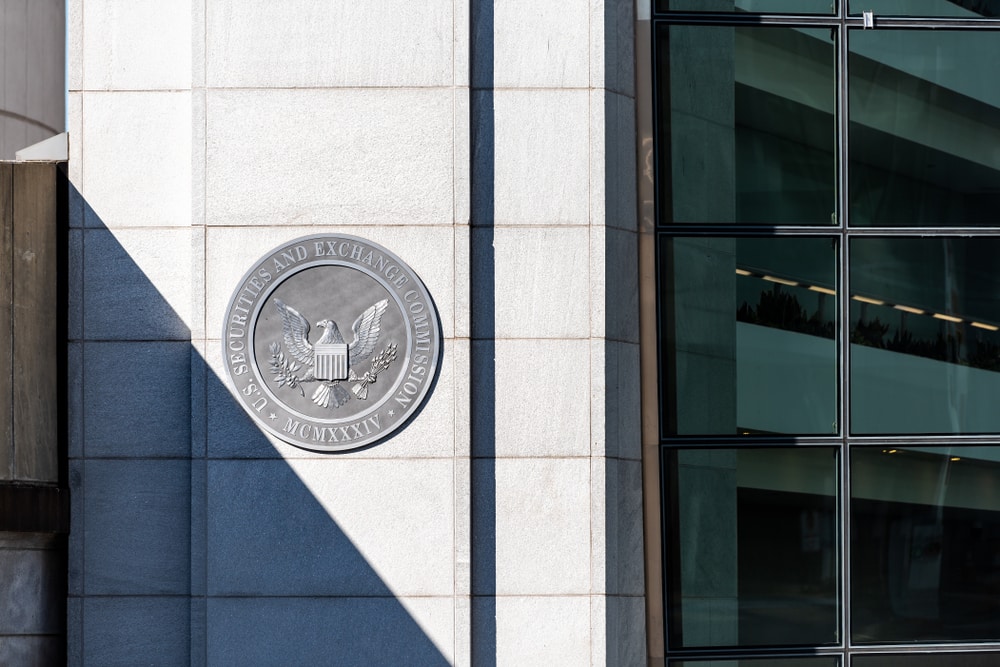Crypto Win? SEC Admits Not All ICO Tokens are Securities

One condition of non-enforcement is that the company must not use the proceeds from sales of tokens for developing the platform. It must also only buy back tokens at a discount. | Source: Shutterstock
Under strict conditions, a US business travel company will be allowed to sell tokens. The SEC published a letter to TurnKey Jet today, which was in response to a previous letter from TurnKey’s lawyer. This is an about-face for the SEC, whose director Jay Clayton has in the past said that every token he has ever seen is a security, but recently softened his stance on Ether.
The letter outlines the conditions under which the SEC has decided to recommend “no enforcement,” agreeing that the company’s tokens are not securities.
How To Ensure Your Token Isn’t a Security: Be Nontransferable and Nonrefundable
The most difficult condition placed on Turnkey is that tokens must be nontransferable. The SEC says :
TKJ will restrict transfers of Tokens to TKJ Wallets only, and not to wallets external to the Platform.
Limiting transferability is hard to do with any existing blockchain platform. TurnKey’s letter to the SEC described the TurnKey Jet’s blockchain program as “centralized” and “permissioned:”
The proposed TKJ Tokens will operate and be deployed on the Platform and Network consisting of a private, permissioned, centralized blockchain network and smart contract infrastructure operated by TKJ. TKJ will run the Platform and Network and use third-party service providers, as necessary, to meet operational requirements, including providers of internal tools for developers, user-facing app interfaces, wallets, smart contract infrastructure and private network and token management services.
Another condition of non-enforcement is that the company must not use the proceeds from sales of tokens for developing the platform. It must also only buy back tokens at a discount. People who hold TKJ must always take a loss if they opt not to use the tokens.
You Won’t See TKJ Tokens on Binance
TurnKey presents the TKJ token as a means to cut down on the friction of sending and receiving international wire payments for flights. They further say that the use of a blockchain will help fight “fraud.” The company hopes that by offering prepaid tokens, people will use their private jet service more often, arguing that the problems associated with traditional payment methods for their (pricey) services often discourage use of the airline.
TurnKey currently only operates two jets, and will be adding a third soon. The company’s webpage is nothing fancy . Based in Delaware, the company primarily operates in Florida. They are the first to receive a “no action” decision from the SEC, while the rest of the blockchain industry remains overtly confused about the difference between a utility token and security.
The SEC seems comfortable with TurnKey issuing utility tokens as long as its list of requirements is met. The gist of it is that token holders must not believe they’re going to profit by holding the tokens and must not have avenues to do so. The use of a “permissioned, centralized” blockchain will have to ensure as much.
Registering As A Security Now More Attractive?
TKJ tokens are essentially a single-use stablecoin, being worth $1 and retaining that worth throughout the life of the program. While the SEC is currently recommending no enforcement, they are flexing their regulatory muscles nonetheless by dictating that the future price of the token and the nature of its use. If people buy TKJ tokens and want to redeem them without using them, they aren’t allowed to receive the full value back. This will discourage any form of arbitrage.
The episode creates a framework by which other companies could potentially issue blockchain tokens for rewards programs and the like. However, for many ICOs and companies, it also makes the process of registering securities with the SEC more attractive to firms who wish to offer tokens with more functionality. The nontransferable nature of TKJ tokens makes their actual utility very limited. Holders can do two things with them: use them for air services with a single company or sell them back to the same company for a loss.